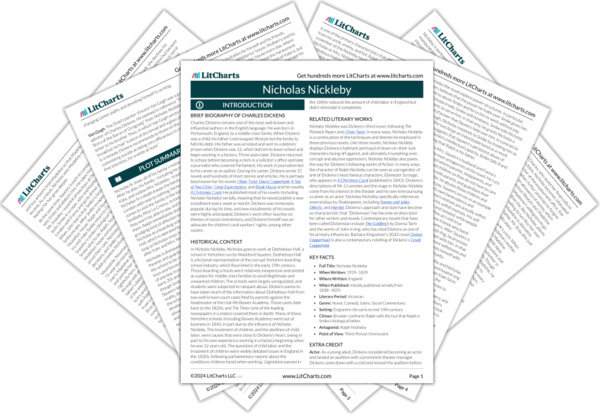Dickens continues to satirize the way that people loudly proclaim their own virtue and benevolent intentions when they are really self-interested and intent on securing their own profits above all else. The man who speaks specifically brings up stories of people who are down on their luck, but it’s unclear how the muffin business will materially benefit the people he references. Instead, the muffin business will function to benefit the wealthy politicians and businessmen who are already in the room.
